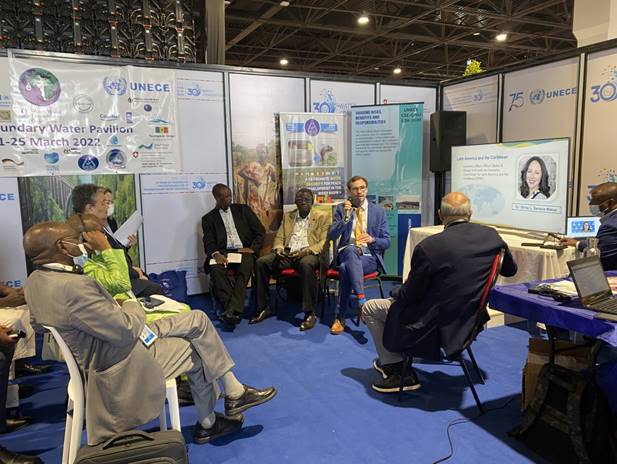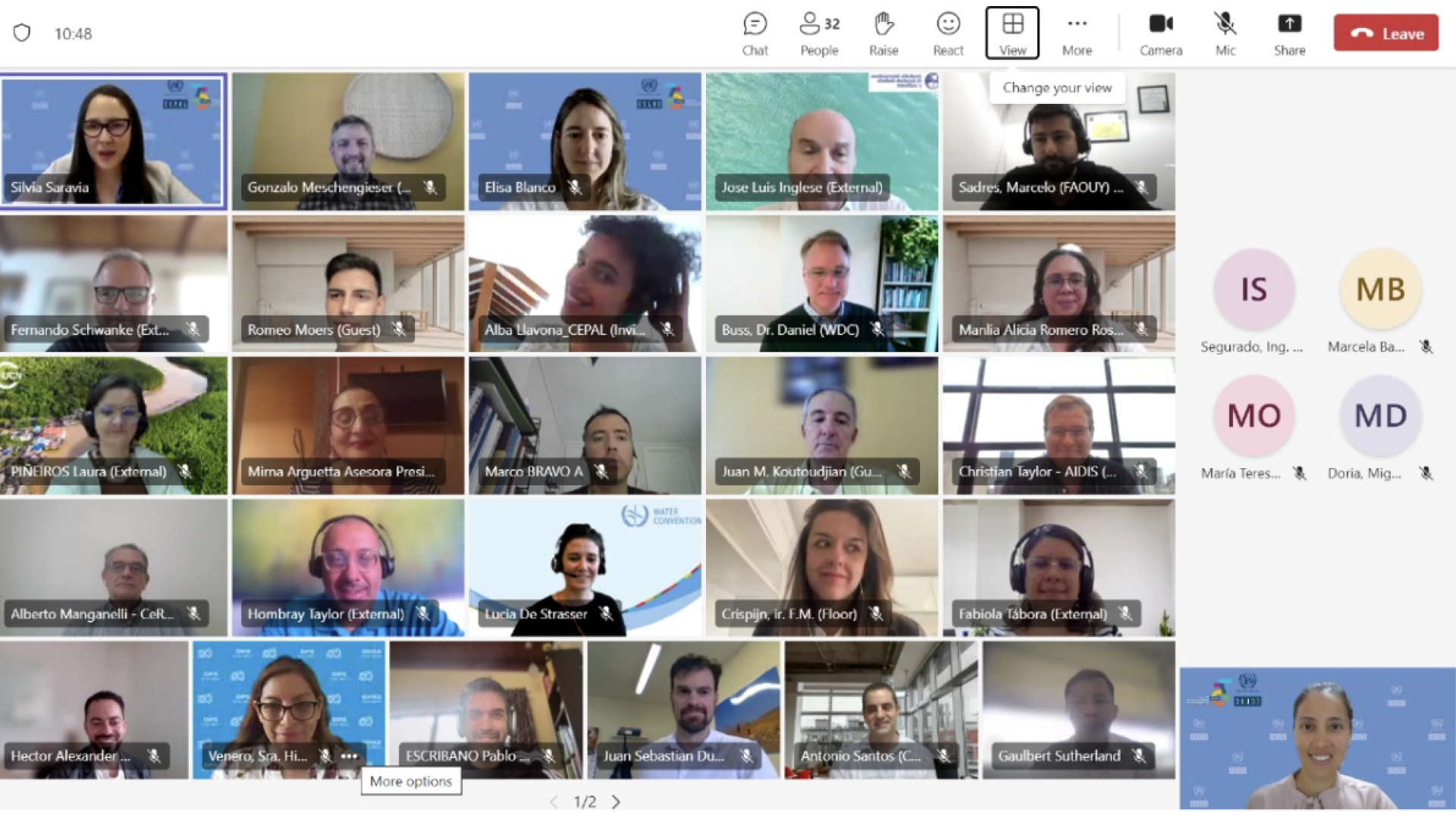Briefing note
ECLAC’s virtual participation in the World Water Forum in Dakar, Senegal, at the UNECE pavilion on “Transboundary Nexus Governance”
On March 25, Silvia Saravia Matus, Economic Affairs Officer of the Water and Energy Unit of the Natural Resources Division of ECLAC, participated virtually in the session “Solving the Rubik´s cube” at the World Water Forum hosted by The Nexus Regional Dialogue Programme. A diverse panel featured high-level representatives from five regions, including Central Asia, Middle East and Nothern Africa (MENA), the Niger Basin, Southern Africa and Latin America and the Caribbean (LAC), providing insights into region-specific tools and methods for successful WEF Nexus institutionalization. The interventions focused on multi-level Nexus governance to ensure stability and sustainability in shared waters, highlighting the common challenges and opportunities identified amongst the regions, such as the importance of sharing a common vision by all involved sectors and states. Additionally, the concrete added benefit of the WEF Nexus by enhancing resource efficiency and resource security was highlighted in the session.
Saravia Matus represented regional insights from LAC, opening her intervention by highlighting the institutional preconditions for a Nexus governance framework in the region. She emphasized the importance of a water management transition in LAC that is connected to 4 key goals: ¡) guarantee the human right to safely managed drinking water and sanitation by boosting investment in the sector, ii) increase equality of access and affordability, thus eradicating water poverty, iii) reverse the growing negative externalities associated with pollution, overexploitation and socio-environmental conflicts, and iv) develop circular economies through the water value chain to reduce pressure on water resources, establishing a trend towards decoupling between water extraction and GDP.
To achieve these goals, Saravia Matus continued to highlight the importance of a Nexus approach as it fosters articulation between the different sectors and basins users and clarifies priorities at levels of scarcity. In addition, she added how it considers economic instruments, such as charges for different uses, taxes and fines for negative environmental impacts.
Saravia Matus shared her insights on how nexus system thinking is relevant in national and transboundary management and specified six recommendations that emerged from the analysis of regional case studies and the developed guideline by CEPAL; 1) It is crucial to ensure that dialogue and participation are as broad as possible, representing all involved interest and sectors, and 2) strengthen the multidimensional analysis of root problems to create realistic and tangible goals. 3) Evaluation and prioritization of alternatives from socio-environmental and economic perspectives are fundamental, and 4) it is essential to establish precise coordination mechanisms and dialogue between public agencies and relevant intersectoral actors. 5) A focus shall be laid on balanced financial planning and strong leadership, and 6) dedicate sufficient resources to monitoring and evaluation, which is central in adopting a nexus approach.
To finalize her intervention, Saravia Matus indicated that these six points are critical issues to consider at local and national scales, but they become highly complex at cross border level. For this, four additional aspects shall be considered: 1) Update or develop regulatory frameworks capable of responding to the complex and interconnected challenges, 2) modernize or create intersectoral and international coordination mechanisms with a political commitment and clear rules between countries, 3) develop shared information and monitoring systems to track policies and their impacts on transboundary water bodies, and finally 4) align public and private financing mechanisms to optimize the use of water resources, recognizing their multiple uses and avoiding duplication.
The link to the recording can be found here: https://www.youtube.com/watch?v=GaN0J0eYzMY



